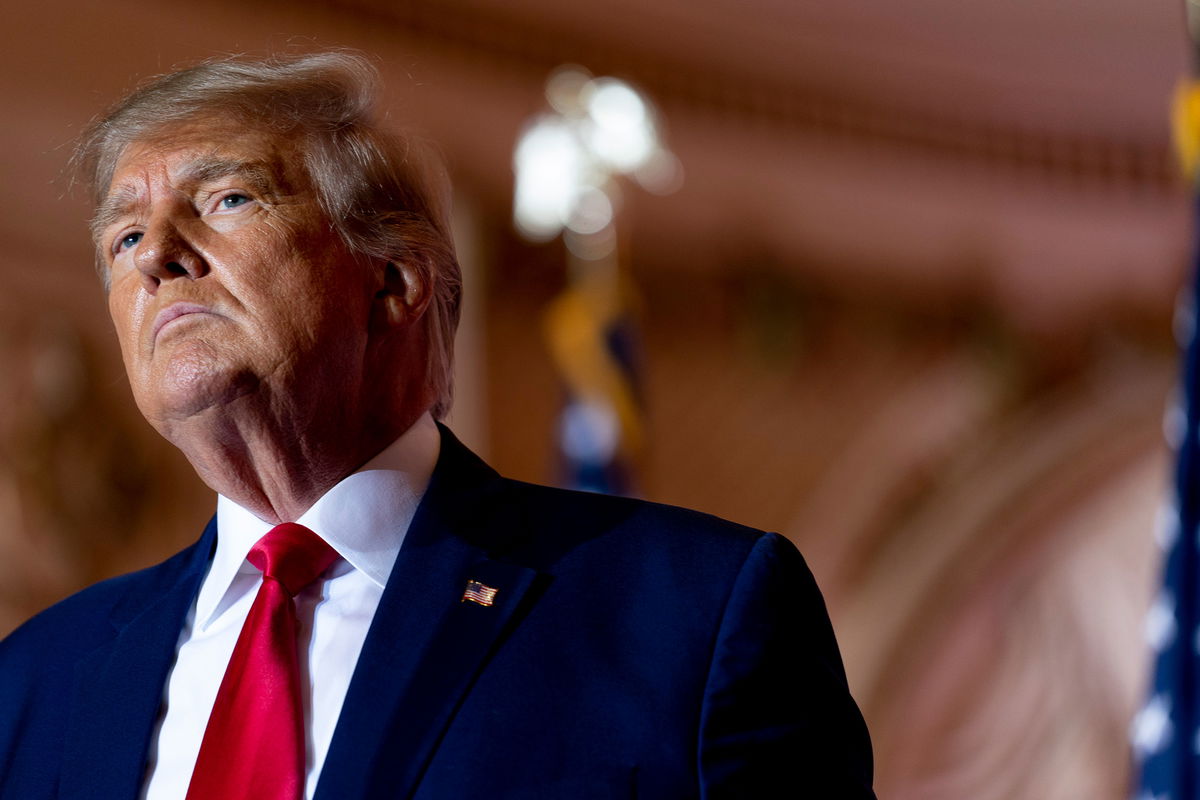Democratic-led House Ways and Means Committee votes to release materials on Trump’s taxes to the public

(CNN) -- The Democratic-led House Ways and Means Committee has approved a motion to release the materials surrounding Donald Trump's tax returns to the House of Representatives, clearing the way for those materials to be made public.
It is unclear when the public will see these materials. The vote was approved with all Democrats voting in favor and all Republicans voting no.
The committee said it will redact personal information from the documents.
The highly anticipated meeting, which began publicly but quickly entered into a closed, private session, was years in the making but comes as Democrats have just days to act on whether to release the former president's tax returns. While there is historic precedent for Ways and Means to release confidential tax information, a decision to put it out to the public would come with intense political fallout as Trump has already declared he is running for president in 2024.
The committee has had access to Trump's taxes for weeks after winning a lengthy legal battle that began in the spring of 2019. House Ways and Means Chairman Richard Neal requested the first six years of Trump's taxes as well as tax returns for eight of his businesses back in April of 2019.
Neal and his ranking member Kevin Brady have had access to the information, and rank-and-file members on the committee will have begun to have access and review at least some of Trump's tax information, according to a source familiar.
It's not clear if members would have access to all of the information.
Republicans on the committee are preparing to push back hard if Democrats vote to release any of Trump's tax information, committee sources tell CNN. The argument Republicans will wage, however, won't center on defending Trump explicitly but rather what the release means for politicians and ordinary people in the future.
Rep. Kevin Brady of Texas, the panel's top Republican, told reporters just before Tuesday's meeting that releasing Trump's tax returns would amount to "a dangerous new political weapon that reaches far beyond the former president and overturns decades of privacy protections for average Americans that have existed since the Watergate reform."
"We are unified in our concern the Democrats may today move forward with unprecedented action that will jeopardize the right of every American to be protected from political targeting by Congress," Brady said.
Democrats on the committee would rely on section 6103 of the tax code to lawfully release information about Trump's taxes, but Republicans are prepared to argue that Democrats are abusing the provision, attacking a political enemy and potentially unleashing a system where even individuals could have their personal information exposed if they become targets of the committee.
What comes next
Once the committee's Tuesday meeting was underway, the panel voted immediately to enter into a closed, private session. Members and staff in the room would have been able to freely discuss the information contained in Trump's tax returns and begin their debate about what to do next.
Historical precedent
When Neal requested Trump's tax information in 2019, he wasn't the first chairman to use an arcane section of the tax code known as 6013 to glean confidential tax information. The same statute has been used a number of times by Ways and Means chairmen for investigations and the Joint Committee on Taxation also used the statute to obtain information about former President Richard Nixon's taxes in the 1970s.
According to the House Ways and Means Committee, that information was requested and received without a legal fight. Nixon had voluntarily released some of his returns, but JCT requested additional returns using 6103, according to a House Ways and Means Committee memo released earlier this summer. Republicans have also used the 6103 statute. Back in 2014, Ways and Means Chairman Dave Camp led the committee in releasing confidential tax information to further the committee's investigation into whether the IRS had unfairly targeted conservative organizations when deciding on groups to probe.
What the public could learn
While The New York Times obtained decades of Trump's personal tax information back in 2020, Neal's request could shed light on additional years of Trump's finances and paint a picture of how the former president used his business entities and personal wealth in the years before and after becoming president.
Trump broke with tradition in 2016 by refusing to release any of his personal tax returns.
Democrats have long argued that Trump's taxes could provide necessary information about whether the president had any entanglements that could impact his decision making as president. Democrats on the House Ways and Means Committee argued in court they needed Trump's tax returns so they could understand better the presidential audit program, which is supposed to routinely audit the returns of every incoming president and vice president when they are elected.
Neal didn't just request Trump's raw tax return, however. Neal also requested administrative files and paperwork, items that could include IRS officials' notes or audits of Trump's returns. The information could paint a picture of what kind of scrutiny the IRS has pursued on Trump in the past and whether any of that scrutiny changed when he became president.
If the committee did vote to make the information public, it could shed light on how wealthy Trump really is, how much he gave to charity and how much he paid in taxes. The New York Times report in 2020 made clear that Trump carried over business losses for years to legally be able to avoid paying taxes for many of those years, but Ways and Means will have access to some additional years of Trump taxes as well.
The-CNN-Wire
™ & © 2022 Cable News Network, Inc., a Warner Bros. Discovery Company. All rights reserved.
